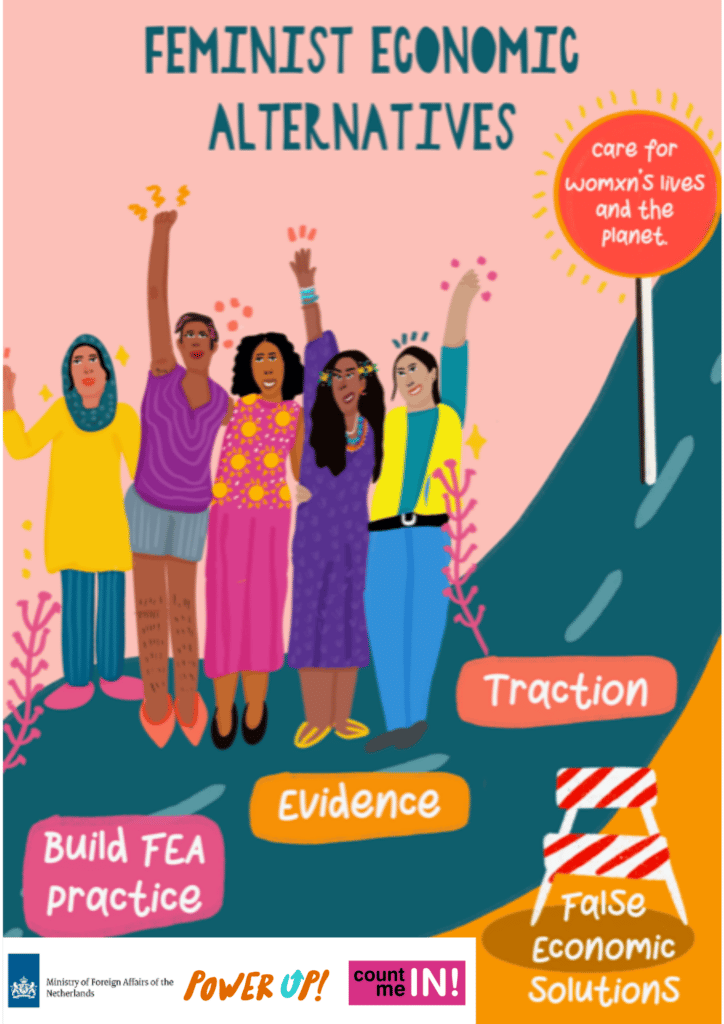Every day we witness how the capitalist economic system is fuelling inequality, injustice and climate crisis. Count Me In! (CMI!) and the Power Up! (PU!) consortia organised a roundtable conversation * to discuss feminist economic alternatives (FEAs) that break away from the violent and exploitative nature of capitalism to centre care, and seek to sustain systemic change informed by the needs and issues of women, climate, and nature.
Here are some key highlights from the conversation:
FEAs comprise a wide spectrum of equitable alternatives to the current economic system, starting from a point of resistance to the status quo, which put gender justice and feminist leadership at the heart of the work. – Fatimah Kelleher, Women’s Rights Strategist & Technical Adviser
FEAs are important now because we are stuck and need a new and inspiring direction. – Inna Michaeli , AWID


Social norms function as an invisible power that normalises the status quo and deters women from questioning the systems and layers of power in their lives. It normalises the belief that poverty and exclusion are their destiny. – Nani Zulminarni, PEKKA
Capitalism continues to be successful because donors pour money into sustaining it; philanthropy contributes to spreading the free market ideology. Instead, more money needs to go directly to women’s right’s organisations (WROs). – Happy Mwende Kinyili, Mama Cash
*On 29 September 2022, the PU! and CMI! consortia welcomed 45 attendees in person and online to a roundtable discussion and learning event on FEAs, hosted in the office of the Dutch Ministry of Foreign Affairs (MFA). The invitation-only event included a mix of local partners and consortium representatives from the Strengthening Civil Society strategic partnerships of the Dutch MFA, representatives from the Dutch Enterprise Agency, members of the Dutch MFA Task Force Women’s Rights and Gender Equality, and other guests from the philanthropy sector. Presenters included FEA experts and representatives from JASS, Yayasan PEKKA, AWID, Mama Cash, Gender at Work, and the MFA. The report has also been published on the JASS website here.